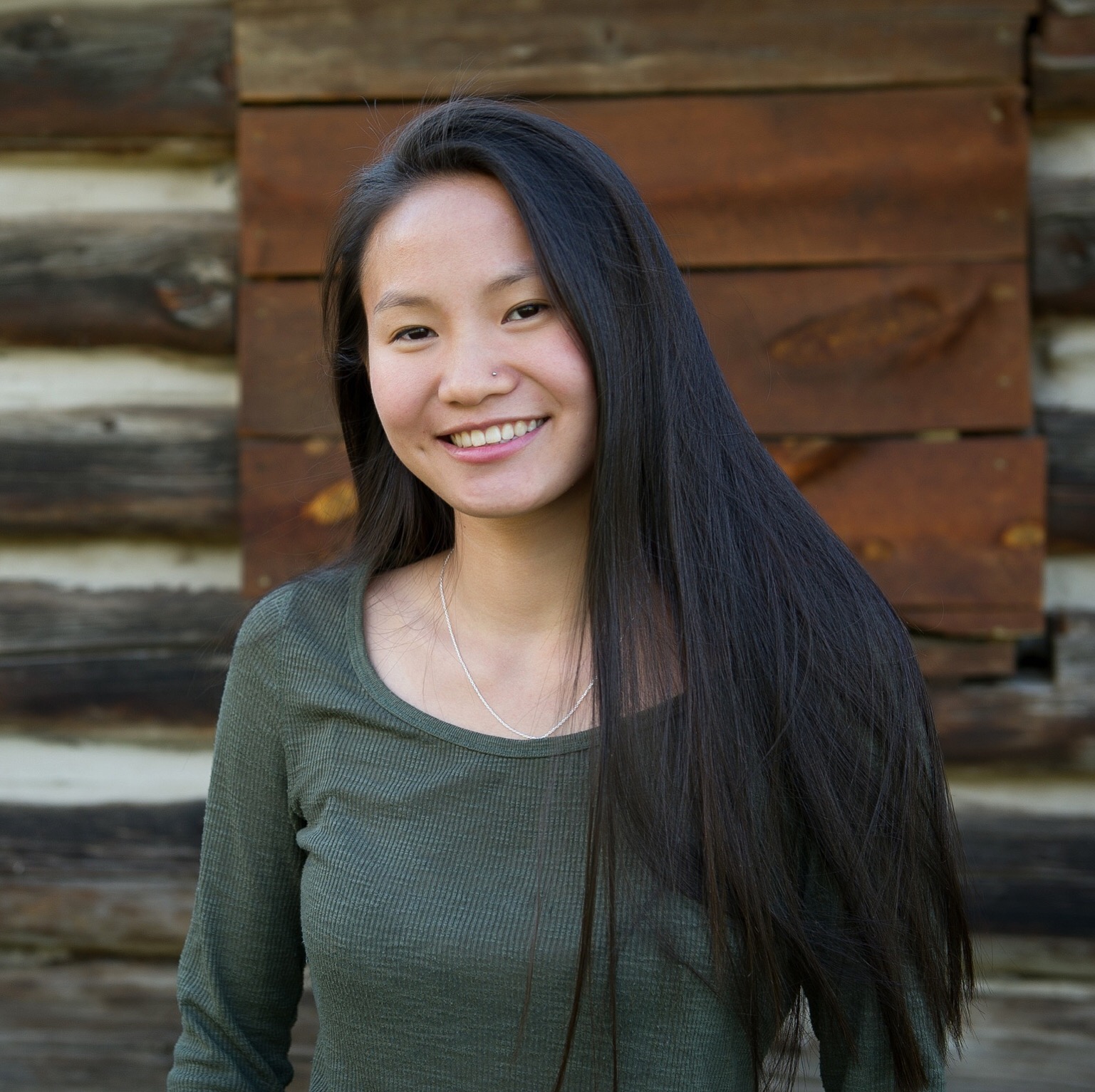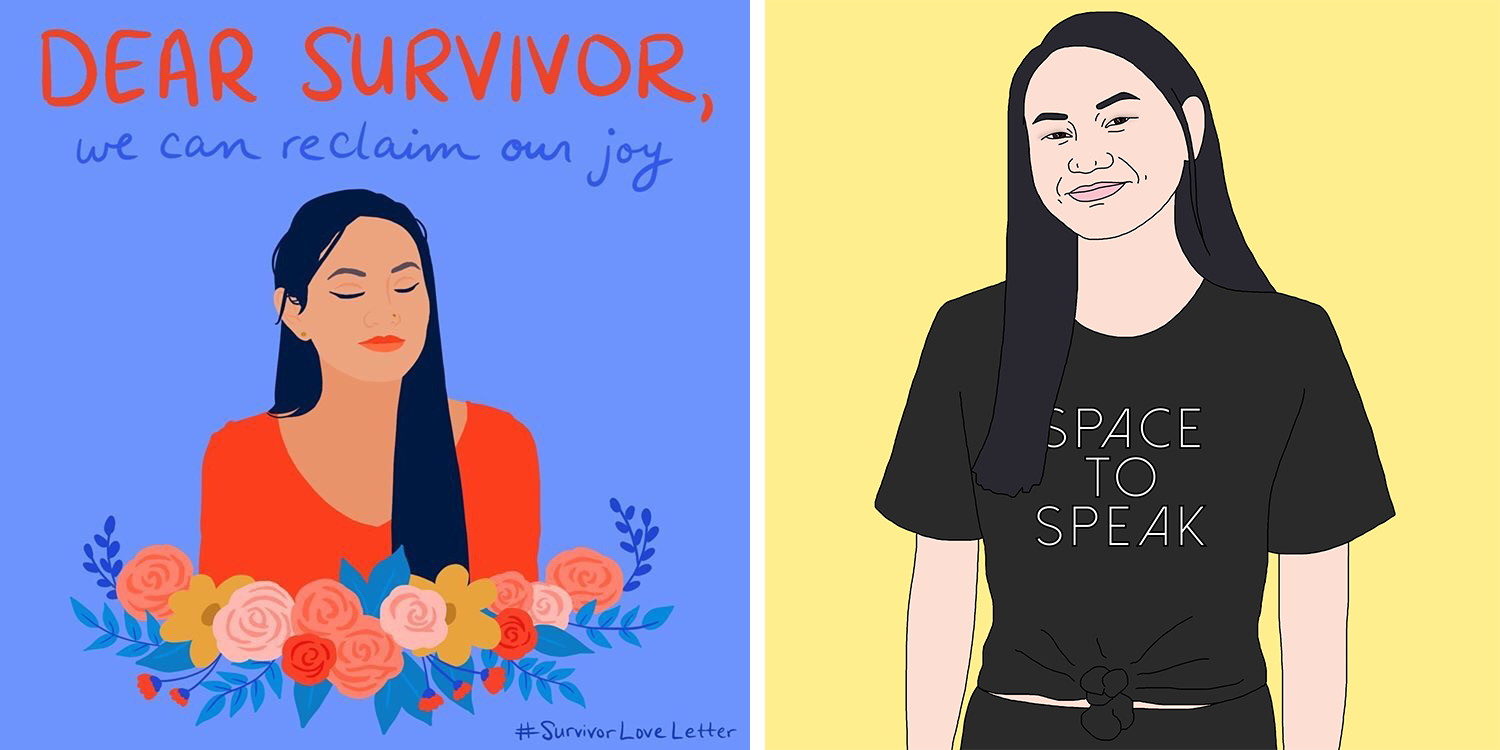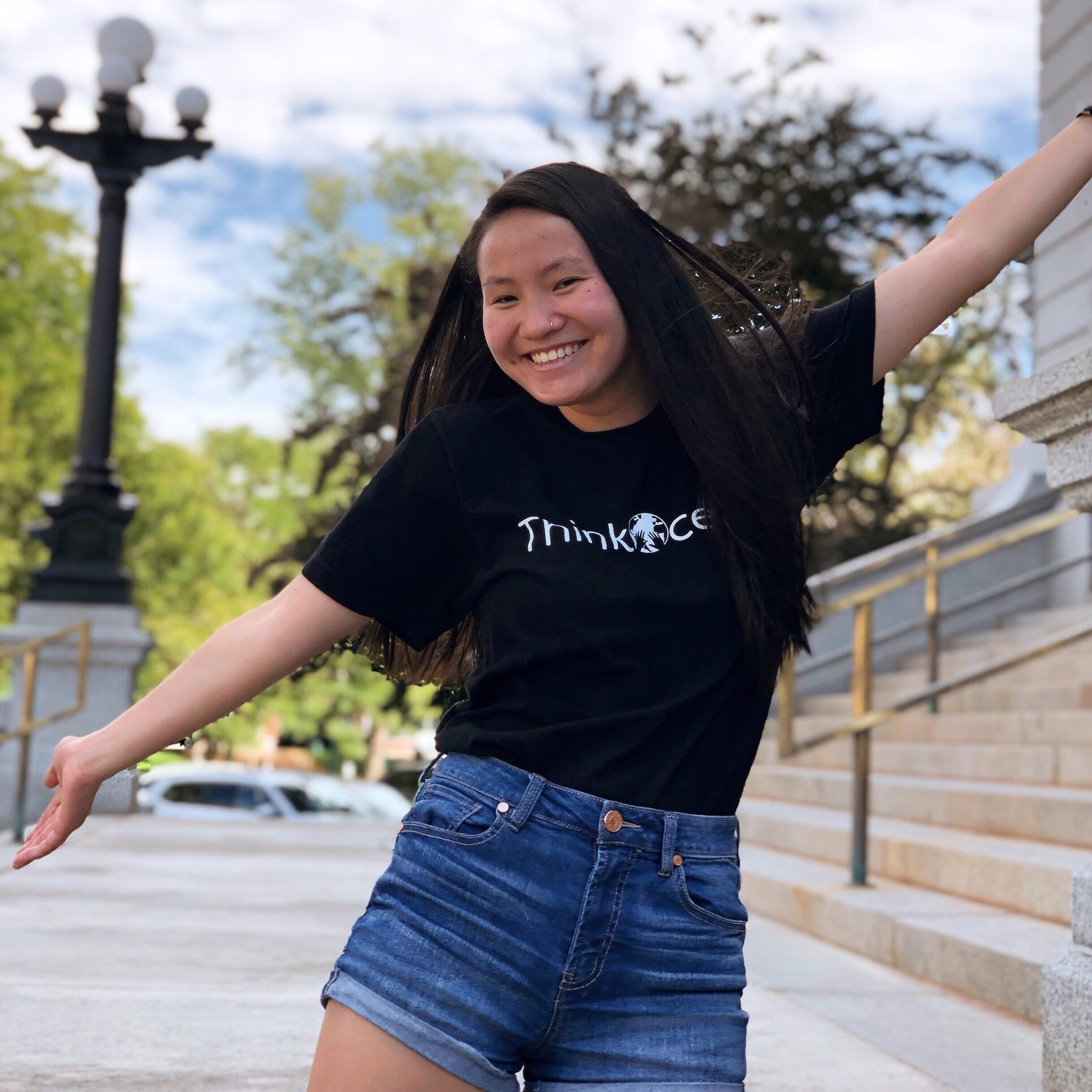
Becoming a survivor at 14-years-old did not define her – she wouldn’t let it.
Throughout high school, Maya Siegel dedicated her time and energy to her work and her athletic career. But she did not talk about her experience and tell her story until she left her hometown to come to the College of Business.
“I found my voice in college,” she said.
She took that voice and created a space for others to do the same when she founded Space to Speak. The community-building organization, which Siegel hopes to establish as a nonprofit, supports predominantly Gen Z survivors of sexual violence by connecting them to one another and holding a space for them to share their experiences. It also educates allies through downloadable guides and fundraises for nonprofit partners.
Siegel isn’t just a founder — she is a social and creative operations manager, web designer and consultant. Her personal experiences motivate and inspire her to make a difference through activism and community building. She has won numerous awards for her work. She’s done it all while studying marketing and entrepreneurship.
“She is one of the most selfless people I know,” Siegel’s sister, Julia, said. “Maya gives care and attention to everything she works on, no matter who it’s for. She inspires me every day to be a better person.”
Space to Speak’s Impact
In April 2020, Space to Speak partnered with FreeFrom to directly support more than 470 survivors with funds for rent, groceries, medicine and other critical needs by fundraising over $118,000.
“The pandemic negatively impacted a lot of survivors; we were able to help some of them leave unsafe environments,” Siegel explained.
The organization hosts a Discord channel for Gen Z survivors. It has grown into a tight-knit community of 234 members since its inception this February. Space to Speak holds Virtual Healing Nights through Discord where members can share their experiences in a safe, supportive space.
“On our first Virtual Healing Night, I was particularly inspired by a young mother who shared her story about surviving domestic abuse,” Siegel said. “She’s been through a lot but continues to persevere, determined not to live her life in fear.”
Today, Space to Speak operates with a leadership team made up of 14 volunteers across nine states and four countries. Siegel didn’t think she would be leading a team and connecting hundreds of survivors at only 21-years-old. Not to mention her other work and volunteer endeavors.
“I never imagined being able to speak about sexual violence, let alone embrace my identity as a survivor in such a public way,” she reflected.
 In 2019, an MTV article featured a few members of the Space to Speak team on how to be a better partner to sexual assault survivors. Her biggest piece of advice in the article is to hold the space for them and affirm their power to say “no” at any point.
In 2019, an MTV article featured a few members of the Space to Speak team on how to be a better partner to sexual assault survivors. Her biggest piece of advice in the article is to hold the space for them and affirm their power to say “no” at any point.
Siegel plans to investigate what it takes to establish Space to Speak as a nonprofit through her senior honors thesis in the fall – and hopes to secure a fiscal sponsor in the process. Once the organization is financially sustainable, Siegel plans to step away from day-to-day operations and continue exploring her passion for social impact through business.
Creating her own opportunities
When Siegel founded Space to Speak, she knew building a website was an important step. After looking for assistance, she quickly learned that hiring a developer to create her website was unaffordable.
“I decided to turn my constraint into an opportunity and design it myself, falling in love with design in the process,” Siegel said. “My web design work is a powerful form of activism. It allows me to fight for every cause I care about. I’ve designed over 30 sites for Gen Z leaders and organizations, and I love uplifting their stories.”
In a Women in Social Media webinar, Siegel explained that she generally creates her own opportunities, rather than applying for them. She shared how she messaged the founder of a Gen Z organization with a full website draft and was offered a position on the leadership team as a result. She later became the social media manager and grew their Instagram community by over 10,000 followers in 18 months.
“I am proud of my personal growth as a leader and my ability to create opportunities for myself,” Siegel said.
Where passion and action meet
 The summer before college, Siegel joined ThinkOcean, a group she helped grow into an international nonprofit for youth who are passionate about addressing the world’s most pressing environmental issues.
The summer before college, Siegel joined ThinkOcean, a group she helped grow into an international nonprofit for youth who are passionate about addressing the world’s most pressing environmental issues.
“At the time, I joined because I was fascinated with marine life and thought I’d study marine biology in college,” she explained. “More recently, I’ve become intrigued by how the supply chain is affected by climate change and how social impact and environmental justice intersect.”
This section of Siegel’s interests and passion lead her to her most recent position as the social and creative operations manager at Intersectional Environmentalist, a platform for resources, information and action steps to support environmentalism and dismantle systems of oppression.
In her role, Siegel is transitioning the organization’s project management platform and spearheading all things social media. She loves this work because she is educating others and uplifting marginalized communities that are disproportionately affected by climate change.
“It’s about justice for people and the planet and companies doing the hard work of political activism instead of profiting from ‘sustainable’ business practices while remaining silent on policy,” Siegel said. “Climate change is the result of carbon-heavy infrastructure and the broken systems we exist within. We must individually and collectively invest in changing systems and reimagining our relationship with nature.”
In 2019, Siegel spoke at the climate strike in Denver while interpreting in American Sign Language in front of hundreds. Her sister describes it as one of the moments she was proudest of Maya.
“I think this is one of her greatest accomplishments,” Julia said. “It is something that makes her stand out from her peers. And I think it helped her build some much-needed confidence. It was a big steppingstone.”
Looking forward, Siegel and one of her best friends, Sophia Kianni, plan to partner after college. They hope to explore innovative solutions to reduce industry waste, whether it be packaging, food or textiles. They hope to help bridge surpluses and constraints in a mutually beneficial way.
Successes, accolades and advice
Siegel has received seven honors and awards for her work since 2019. Most recently, she achieved first place in the Service-Learning category for CSU’s celebration of undergraduate research and creativity (CURC), and she was honored as one of five first-place winners for the 2021 MURALS Symposium.
Space to Speak was where everything began for Siegel. She admits that part of her reason for starting the venture was selfish: to help her heal from her trauma. It has done exactly that and grown beyond what she imagined. Now, it’s a space where others can heal, which is gratifying in more ways than one.
It’s clear that Siegel has found success in the last three years, but that time has also been full of learning, pushing and growing. Now, she has some advice for both survivors and other young people who yearn to make a difference.
“For survivors: There is a difference between being respected and being admired. Someone who truly respects you will not put their wants before your needs. They will ask you, ‘How can I make you feel safe?’ before asking, ‘How can I make you feel good?’ Remember that, and don’t settle for less than you deserve,” Siegel said.
“For those wanting to make a difference: Get personal. Think about what issues personally impact you and use your personal narrative as an agent of change-making.”